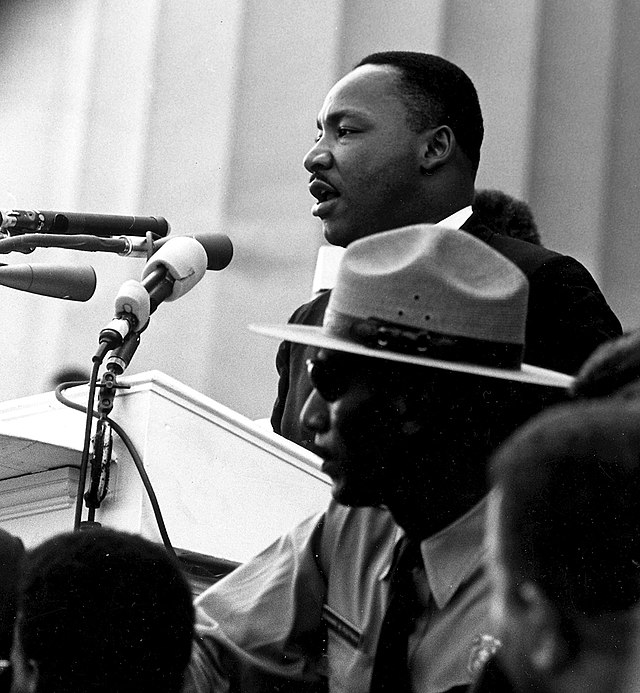National Recording Registry
List of sound recordings preserved in the U.S. Library of Congress From Wikipedia, the free encyclopedia
The National Recording Registry is a list of sound recordings that "are culturally, historically, or aesthetically significant, and inform or reflect life in the United States."[1] The registry was established by the National Recording Preservation Act of 2000,[2] which created the National Recording Preservation Board, whose members are appointed by the Librarian of Congress. The recordings preserved in the United States National Recording Registry form a registry of recordings selected yearly by the National Recording Preservation Board for preservation in the Library of Congress.[2]

The National Recording Preservation Act of 2000 established a national program to guard America's sound recording heritage. The Act created the National Recording Registry, The National Recording Preservation Board and a fund-raising foundation.[3] The purpose of the Registry is to maintain and preserve sound recordings and collections of sound recordings that are culturally, historically, or aesthetically significant.[2] Beginning in 2002, the National Recording Preservation Board has selected recordings nominated each year to be preserved. On January 27, 2003, the first 50 recordings were announced by James Billington, the Librarian of Congress.[4]
The first four yearly lists each had 50 selections. Since 2006, 25 recordings have been selected annually. As of 2024[update], a total of 650 recordings have been preserved in the Registry. Each calendar year, public nominations are accepted for inclusion in that year's list of selections, which are announced the following spring.
Registry title works, original or copies, are housed at the Library of Congress' Packard Campus for Audio Video Conservation. Each yearly list typically includes a few recordings that have also been selected for inclusion in the holdings of the National Archives' audiovisual collection. Recordings on the National Recording Registry that are of a political nature tend to overlap with the audiovisual collection of the National Archives.
Selection criteria
Wikimedia Commons has media related to National Recording Registry.
The criteria for selection are:
- Recordings selected for the National Recording Registry are "culturally, historically or aesthetically significant", and inform or reflect culture in the United States.[5][1]
- Recordings will not be considered for inclusion in the National Recording Registry if no copy of the recording exists.[5]
- No recording is eligible for inclusion in the National Recording Registry until ten years after the recording's creation.[5]
Inductees
Summarize
Perspective
The list shows overlapping items and whether the National Archives has an original or a copy of the recording.
Notes
- The essay accompanying the U.S. Highball listing seems to concern the later 1958 Gate 5 recording.[16]
- This recording is, or was made for, the soundtrack of a National Film Registry inductee.
- Library of Congress sources conflict regarding the Pat Bonner recording(s) in the registry. The original press release names "Schooner Bradley",[20] while the full registry list and an expanded essay name "Clifton's Crew".[21][22] A list of available audio clips for registry titles includes both "Schooner Bradley" and "Clifton's Crew".[23]
- The class of 2022 saw a shift with the current calendar year being cited as the "induction year", as opposed to the previous year. Consequently, 2021 was skipped over.[95]
Statistics
Summarize
Perspective
As of 2023[update], the oldest recording on the list is Edouard-Leon Scott de Martinville's Phonautograms which date back to the 1850s.[113] The most recent is the Chamber Music Northwest's rendition of Ellen Taaffe Zwilich's Concerto for Clarinet and Chamber Ensemble from 2012.[114]
Selections vary widely in duration. The early Edison recordings, the instrumental "Rumble" by Link Wray, "Rock Around the Clock" by Bill Haley and His Comets and the Super Mario Bros. theme by Koji Kondo each clock in at under three minutes. The Edison "Talking Doll" cylinder is only 17 seconds long and some of Scott de Martinville's Phonautographs are just as brief. Meanwhile, Georg Solti's recording of Wagner's complete Ring Cycle is approximately 15 hours in duration,[115] Alexander Scourby's recitation of the King James Bible is over 80 hours, and Lyndon B. Johnson's recordings are nearly 850 hours in length.
Two significant podcast episodes are included: "The Giant Pool of Money" from This American Life (focusing on the subprime mortgage crisis causing the Great Recession) and the Robin Williams interview from WTF with Marc Maron (before his death from suicide in 2014).[116][117]
The Super Mario Bros. theme is the first piece of video game music to be selected for the Registry.[118][119][120]
Multiple entries
| List of names |
|
See also
References
External links
Wikiwand - on
Seamless Wikipedia browsing. On steroids.
